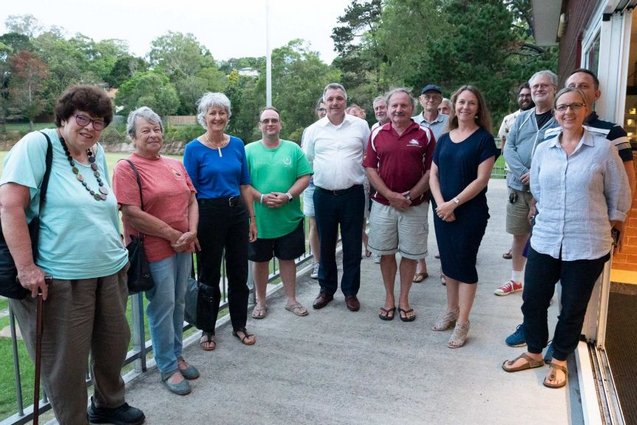Do we really want to say in a decade’s time that we couldn’t spend money on lowering emissions because we were worried about interest rates?

|
|
‘We are ... at a crucial moment, which requires massive
investment in order to lower emissions.’
Photograph: David Crosling/AAP
|
One of economist John Maynard Keynes’ most repeated aphorisms is “when the facts change, I change my mind. What do you do, sir?” There is no evidence he ever said such a thing, which is just as well because while many utter the line, few follow through.
Usually, the change of mind is brief, until the facts can once again be dismissed.
For all of my lifetime, the Liberal party has sowed fear of government debt and budget deficits because they said it would increase inflation and interest rates.
In 2010 Mathias Cormann told parliament that GFC stimulus “has delivered record levels of debt and record levels of deficit and which has been putting upward pressure on interest rates and inflation”.
At that time the cash rate was 4.75%. Since then government net debt has gone from 3.7% of GDP to 34% and yet the cash rate is now 0.1%.
But hey, “facts”.
Then when the pandemic hit, the facts changed and so did their minds.
Last year, Cormann responded to questions about the massive increase in the budget deficit by saying “what is the alternative? Are you suggesting that we should not have provided the support we did to boost our health system, to protect jobs, to protect livelihoods? I mean, in the circumstances what was the alternative.”
It was a good answer and remains so even though this week the parliamentary budget office revealed government net debt has increased by 42% in one year from $430bn to $611bn.
And yet there has been no increase in the amount the government needs repaying because interest rates have actually fallen.
The PBO estimated that in the December quarter last year debt interest repayments were $4.1bn – the same amount it was in December 2016 when total debt was half the current level.
Imagine doubling your mortgage, but not your fortnightly repayments.
In December 2016 the government paid around 2.8% interest on a 10-year bond; right now it is paying around 1.2%.
And yet despite this, the fear of debt and deficit has returned.
On Friday the man who took over Cormann’s role as finance minister, Simon Birmingham, said in a speech to the Australia-Israel Chamber of Commerce that if interest rates converge to their long-run level the “increase in interest payments alone would add a further $44.5bn to gross debt in a decade’s time”.
He further suggested that “you don’t run an Australian economy on crisis settings when you’ve got through the crisis”.
Except, of course, we currently are in the greatest crisis to face the world’s economy – climate change.
We are also at a crucial moment, which requires massive investment in order to lower emissions.
The EU are moving towards imposing a carbon import levy, and Australia now finds itself utterly struggling to make the cuts required to keep temperatures from rising 2C above pre-industrial levels.
The Coalition only sees a crisis when it wants to. It refused to admit the GFC was one, and has never treated climate change as anything other than something to be mostly ignored.
But despite all contrary evidence, they keep saying rising debt is a crisis.
Do we really want to be telling people in a decade’s time that we couldn’t spend money needed to lower our emissions because interest rates were 1.2% and we were worried they might rise?
The Coalition reacted to the economic impact of Covid-19 by dismissing concerns about debt. And yet when faced with a much greater impact of climate change they remain wedded to old canards that have been shown not to hold.
But, to paraphrase Cormann, what is the alternative? Are you suggesting that we should not provide the support we need to get to net zero emissions to protect jobs, to protect livelihoods?
Unless you deny climate change, there is no alternative.
Links
- Australia's climate policy is a mix of delusion and denial. We need to get real
- The biggest Coalition conspiracy theory is climate change denial
- Australia's Emissions Data Would Shame The Coalition, If Such A Thing Were Possible
- It's No Surprise Emissions Keep Going Up. There's No Price On Carbon
- (AU) Australia Needs To Stop Thinking That Setting A Target Of Zero Emissions By 2050 Is Good Enough
- (AU) The Climate Crisis Looms As The Coalition Fiddles With Fossil Fuels
- 'Good' Climate Policy Can No Longer Be Our Goal. It's Time To Reach For Perfect
- If You Love Australia, Climate Change Should Scare The Hell Out Of You
- (AU) Behind The Smokescreen, The Coalition's Stance On Climate Change Hasn't Changed At All





